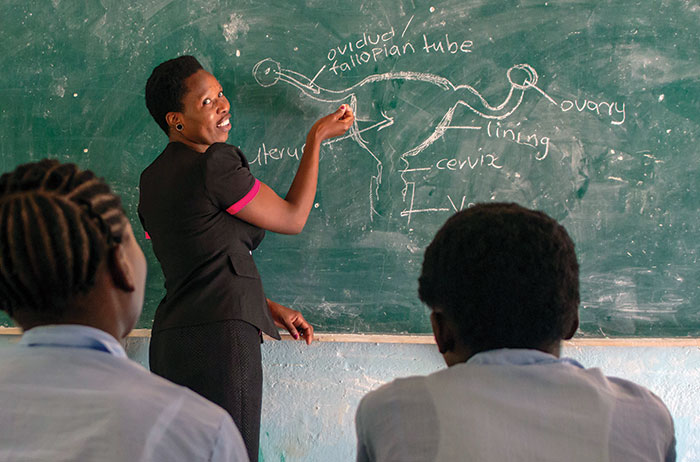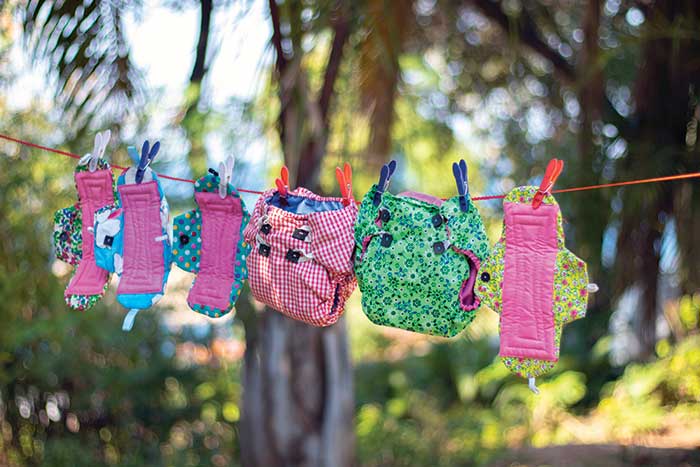Not having menstrual supplies means girls miss out on school, especially girls living in low-income communities who do not have access to these supplies. In this article, Evelien and Helen look at how mothers in Malawi are solving this problem through training and employment to make sanitary materials.
Menstruation – a barrier to education
When girls do not have sanitary pads, they often have to miss school when they are menstruating. Girls can struggle to manage their menstruation because of insufficient information about their bodies and because of the social and hygiene taboos that surround menstruation in their communities. This is made worse when schools lack water, sanitation and effective waste disposal. The situation is similar for girls and boys with incontinence, who may not go to school at all.

Why are sanitary materials not available for girls?
Supply and disposal of sanitary pads is often non-existent in low-income areas, especially remote rural areas. Often the only pads available are imported and expensive. Girls and women sometimes use items such as rags or banana leaves, which can cause health problems and are ineffective, or they ration bought towels, using them longer than they should and increasing the risk of infection.
Getting local producers to make sanitary pads is often difficult due to a lack of technical information and the complexity of regulatory approval. International companies are often unwilling to invest in areas where customers cannot afford high prices.
Sanitary kits to help girls manage menstruation at school
Pads are stitched together using cotton produced in Malawi, plastic and absorbent foam. Girls are provided with pads and a drawstring bag so they can take used pads home after school, wash them with cold water and soap, and dry them in the sunshine.
These kits, distributed to NGOs, contain:
- 5 re-usable pads (3 medium, 2 maximum) which will last over 12 months
- drawstring wet bag, for used pads
- green soap for washing the pads
- underwear
- school supplies such as notebooks and pens.

Involving local women to fix the problem
Supreme Sanitary Pads is a social business set up in northern Malawi in 2015, drawing on international experience. Supreme employs local women and uses safe local materials to produce affordable, re-usable sanitary pads. The sanitary products are bought directly by women and girls, and sold wholesale to shopkeepers, NGOs and donor programmes.
Supreme hires and trains women to become either tailors of sanitary materials or local educators. Educators raise awareness in schools on supporting girls’ menstrual hygiene and promote local demand for safe sanitary materials. The women employed by Supreme are often single mothers, who use the income to support their children’s education – and provide menstrual supplies for their daughters so that they do not have to miss any school.
Supreme’s tailors also produce childbirth pads, diapers and incontinence pants for mothers and people with disabilities. Supreme is adapting its training materials to be accessible so that more women with disabilities can be employed.
More local businesses are now seeing the value of producing affordable sanitary pads through employing local women, using Supreme’s advice and training to set up their own operations.
Contact
Evelien Post was the manager of Supreme Sanitary Pads and can be contacted on evelien.supreme.malawi@outlook.com. The current manager is Rose Woods: rose.supreme.malawi@outlook.com. More information about Supreme can be found on their website: www.suprememalawi.com
Helen Pinnock is an EENET consultant.
